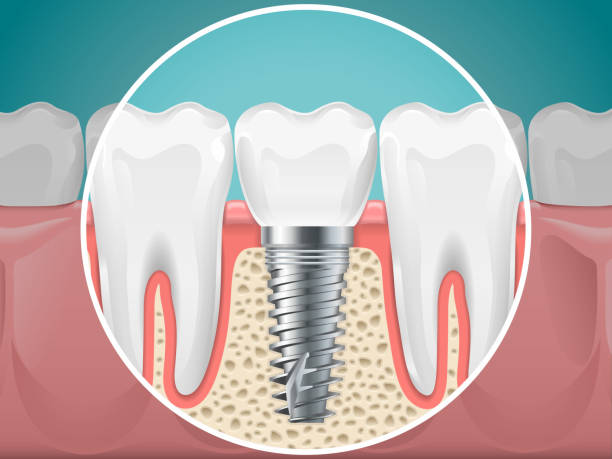Dental Implant
Introduction
What Are Dental Implants?
A Dental Implant is a post which requires placement in the jawbone for placement of a tooth or mounting a bridge. Implants are made with titanium to provide durability to the centre. Through a surgical procedure, they are fitted into the gums to form a strong base on which the crown of a tooth can be placed. It provides a link between the gums and the bottom of a tooth. It takes a few months for the implant to settle in the gums and take a proper position in the jaw. Once resolved, a crown of the tooth can be placed upon it to complete the structure of the tooth.
To know if anyone is right to proceed for a dental implant, one needs to get in touch with a doctor and get themselves evaluated. You can get the proper consultation about dental implants in DR HADA'S CLINIC.
How Painful Are Dental Implants?
Many people who have received dental implants assure future patients that dental implants cause no discomfort during the administration of the entire procedure. This is mostly due to the local anaesthesia which numbs the whole area. In the case of any patient-facing extreme nervousness, the doctor might administer general anaesthesia to ensure a smooth procedure. This also provides that the patient is at comfort while getting the implants placed in their gums. Because of this, most patients agree that they found dental implant procedures to be more comfortable and less painful than a tooth extraction.
After the procedure, one might feel pain and soreness in the bones and jaw for weeks following the surgery. This is treatable by simple over-the-counter pain relievers. The simple tooth implant cost in Dr Hada Clinic is tailored to fit your comfort and convenience.
How Do I Care for Dental Implants?
When you have completed a dental implant procedure with your dentist, you will need to ask them about the care instructions to ensure the longevity of the treatment. Though dental implants are durable, they have a long life only because of the best care that one provides to their oral hygiene and ultimately, the dental implant.
-
Soft brush
After dental implants, changing your meeting might help. You must shift to nylon brushes as they are very soft and delicate on the teeth. It is essential to avoid stiff bristles’ encounters as they may harm the dental implant and cause pain and discomfort. Do not use any metal instrument to clean your mouth.
-
Avoid abrasive products
It is essential to avoid buying hard and abrasive products as they may harm the teeth and gums, causing discomfort. This includes any intensely flavoured product in toothpaste, mouth wash, etc. that can bring an uncomfortable feeling in the mouth after every use. It is better to opt for sensitive products that care for your implant delicately.
-
Daily floss
After getting dental implants, flossing is a must. It is necessary because the plague that might get accumulated around the implant needs to be cleaned every day and avoid long-term collection. This can also lead to oral hygiene issues. There are dental flosses in the market made, especially for dental implants as well. That can help with specialized caring for your implants.
-
Avoid hard foods
Sticky and hard foods are not suitable for dental implants. They can be responsible for damage to the crown and cause discomfort. Some foods that are included in these criteria are ice, dried fruits, candies, potato chips, carrots, caramel, tacos, apples, steak, crusty bread, nuts, etc.
-
Avoid alcohol and smoking
Getting away from tobacco and alcohol is a good idea for general body and dental health after availing a dental implant. Since dental implants might take up to 6 months to completely heal, it is best to avoid smoking. These products are known to slow down the healing and impact the health of the implant.
-
Schedule regular dental visits
A dental implant is a particular procedure that only helps you fill the gap of the missing tooth. It is essential to visit your dentist regularly and allow them a chance to check your teeth for signs of damage.
-
Caring immediately about surgery
It is essential to ensure that you get the entire list of do’s and don’ts from the doctor after the surgery to know what to avoid in the next 24 hours after the implant surgery. Medication must be taken on time as prescribed as they help to fight off any unwanted infection from the surgery. Consumption of soft foods will help to keep the pressure off your teeth. In case of discomfort, ice packs can be of great help.
